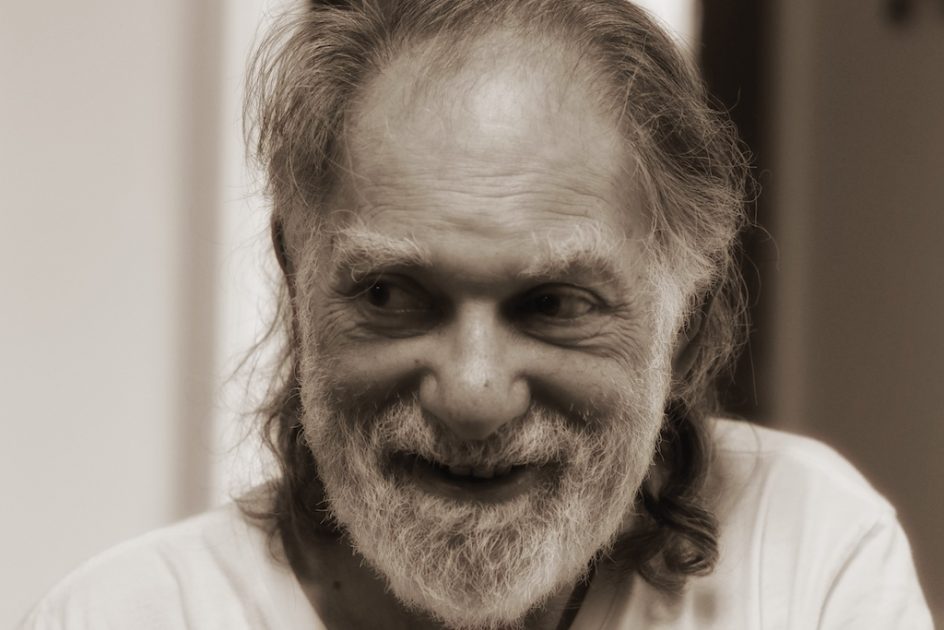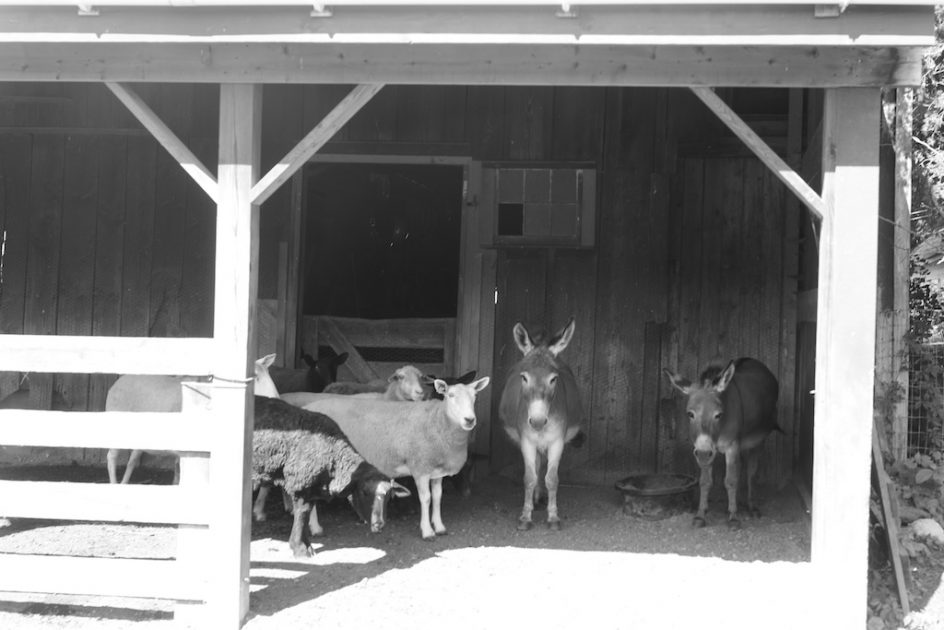
The loss of the old life of the rural communities has usually been written off as an improvement, if it is considered at all. Romantics lament the old values and the old ways, but Political, Cultural and Media America has moved away, leaving the heartland in the dust.
Far from caring for our land and our rural people, writes Wendell Berry, as we would do if we understood our need for them and dependence on them, we have not, as a nation, given them so much as a serious thought for half a century.
Berry, an acclaimed author, farmer and environmentalist, says he follows commentary on politics and economics by accredited and highly educated experts, and “I can assure you that you will rarely find in any of them even a passing reference to agriculture or forestry.”
The ultimate official word on agriculture seems to have been spoken by Dwight D. Eisenhower’s Secretary of Agriculture, Ezra Taft Benson, who told the farmers to “get big or get out.” Most of them have simply gone under.
I am outlier and transplant who lives in rural America. I spent most of my life in urban America, but have finally come home to rural America, it is what I love and where I belong. Everywhere around me, I see the beauty and echoes of community and family but also the devastation and suffering.
Despite the fact that I live here and photograph and talk with farmers and rural people, I did not foresee Donald Trump’s victory, but I should have. In the past year, he has somehow become rural and conservative America’s long awaited savior.
I saw the “Trump-Pence” lawn signs sprouting like dandelions, but I didn’t put it together.
There is perhaps no other swath of America that yearns more for the past than rural America. So many of our cities – Boston, Seattle, Los Angeles, San Francisco, New York, Austin, Denver, even Detroit in some new ways – are growing wealthier by the day in the new global economy.
Rural America has been left behind.
They have, as Berry suggests, languished in neglect and suffering for decades. They saw the family farms collapse under corporate onslaught and government edict; the land has been ravaged and worn, the good jobs gone to the cities, or to China and Mexico, the big farms have devoured the small ones, their children gone with the jobs, their future in darkness, their towns and cities empty and decaying, their schools impoverished, their community institutions and opportunities shuttered, their businesses ravaged by the ruthless box stores owned by strangers, sucking up everything in their path.
The Wal-Marting of America has devastated rural businesses, the chains leave nothing alive, they pay little to their workers and have no relationship to the life and values of their new communities. They offer the lowest prices to the people with the least amount of money.
Nothing is more striking than the stark demographic outline of the election. It was not really a question of left or right, Republican or Democrat. It was a social tsunami.
Rural America was once considered the heart of America, it’s breadbasket and inspiration. Rural Americans helped invent America and led the Revolution.
Agricultural communities fed the new and growing America for generations, and was the source of so many of its values. Thomas Jefferson thought that farmers ought to be the only Americans allowed to vote, only they understood the stake and responsibility we all have to the land.
Now, rural America, abandoned by its own government, has gone to war with urban America, it has become a separate nation with fundamentally different ideas and goals and realities.
Until 2016, no politician or political leader cared. Donald Trump went all over the country saying he cared, and I hope he does. Almost everyone around me here believes that this dysfunctional urban billionaire truly cares about what happens to them and will, almost overnight, bring back much of what they have lost. I believe he connects with their sense of outsiderness and their resentment of what they consider the elites who run the world, he knows and speaks the language of that fury.
Our most powerful politicians and journalists and pundits seem only dimly aware that an actual country lies out there beyond the boundaries of wealth and power. And how could they, are are asked to do little more than sit around horseshoe tables with their open laptops and shout at one another.
They pay no attention to the voices of the country outside of the cities. They will tell you at the Bog Tavern that it cannot possibly get any worse for them, it can only get better.
I was born an urbanite, and was once a political writer. I do not hold the promises of politicians in high regard. But there is hope here now, for the first time in a long time. Like him or not, Trump knows how to communicate with the people who live outside of the big tent. It is a matter of chemistry, not facts or logic.
“I haven’t had a good job in 20 years,” Todd, who worked once at a catheter plant, told me at the bar Wednesday night, “my kids have all run off to the city for jobs they hate and bosses who hate them. They send me money every month so I can fix my teeth. It isn’t right. The Chinese have plenty of work. Things are going to get better in a hurry, Trump will make it happen.”
In a sense, all politician are fantasists. And all, sooner or later, have to lie to win or survive. That is the nature of the beast.
They habitually promise things they can’t possibly deliver, and as the promises pile up, so do the resentments and the rage. Every few years, we are promised a booming economy, safety for our children, lower taxes, fewer regulations, better schools and health care, tough stands with the banks, a return to the good old values of the good old days. We must, we are told, join the new kind of prosperous global economy.
“How many years can you watch your town shrink, your kids leave, the jobs vanish, wages drop, while the people in Washington make one deal after another than just runs us right over? I can’t die and leave this kind of world to my grandkids,” said Jamie, whose factory job left for Mexico 15 years ago. He has not worked since.
Washington, he says, is corrupt, full of people getting rich off the blood of the people they swore to serve. It isn’t a matter of race or sex, he said, for us, it is a matter of survival, he said. “Donald Trump is our last chance.”
The old men and the young men here talk all the time of a better time, of a better past.
They believe it can come back, they believe Donald Trump will bring it back, for the first time in decades, high hopes have returned. He may be a jerk in many ways, they say – they do know this – but that doesn’t mean he won’t bring change. He already has, they say. In stunning contrast to the shock and hysteria that swept much of urban America, there was joy and relief all across the rural divide.
“Trump is the match,” one farmer told me, “Washington is the oil can.” In all of his life, this dairy farmer told me, no Washington politician or bureaucrat has ever done a single thing to help him or any farmer he knows. “What difference does it make if he screws Washington up? He ought to blow it up.” He has renounced his own political system, and he could care less if Donald Trump is dishonest or ill-informed.
The men and women up here in upstate New York talk all of the time about the return of what they call “good work,” work that satisfies, is secure, permits a man to take care of his family and pay for his own teeth.
How did I miss the significance of all this, why was I so shocked by the outcome Tuesday? Perhaps because I listened but didn’t hear. I think of all those signs that began appearing on lawns in the late summer.
Corporate America has savaged the idea of good secure work everywhere, but the difference is that in urban America there are now plenty of bad jobs and plenty of good ones. Kids leave and never come back.
In rural America, there are few jobs at all. We are, says Wendell Berry, the first entire people ever to think of work as something we have a right to escape. In the process, we have forsworn love and excellence, security, health and joy.
I would guess the old timers are romanticizing the past somewhat, people tend to do that as they get older. But there is little doubt there was plenty of sustaining work to be had, off and on the land. A century ago, my town was booming, filled with family farms, factories and opportunities. Kids grew up and stayed, families stayed intact, the communities – stores, churches, schools – were strong and vibrant. Almost all of them is gone or in shadow.
Can we really go backwards and bring back those better times? History suggests otherwise, but the farmers don’t read much history, they cling to theirs. The world is changing, and we have not been asked to sacrifice a thing, only given bigger and grander promises.
Most of us, urban and rural, go along with the fantasists in politics and government and industry who would have us believe that we can pursue our ideals of affluence, comfort, mobility and leisure indefinitely. That we will never have to change. That feels better than the harsher reality, and few politicians have won elections telling distracted masses of people the truth.
The fantasists promise infinite resources for all time, and reject the idea that these resources are limited, or our planet is in danger, or that we have to give up one single thing that we want. They say we can pursue our ideals of affluence, comfort, mobility, and leisure indefinitely. We can get the good old days back, that is their promise to the people of rural America, to the coal and steel miners and workers.
That is their promise to us. Some people see it as a lie, others see it as their salvation. I am eager to see what people here think in six months.
The bedrock faith of the fantasists is predicated on the idea that we will soon develop unlimited new sources of energy without consequence; domestic oil fields, shale, oil, gasified coal, natural gas, nuclear power, solar and wind energy.
The scientists, lonely voices in the corporate and political wilderness, tell us the basic cause of our energy problems is not scarcity, it is moral cowardice, craven and ignorant political leaders, and weakness of characters and resolve. They are not telling people here that we all need to change, they are telling them we never need to change.
__
So this election is a big deal, for rural America in particular, which believes it was left behind, and was, in fact, left behind. The vast range beyond the cities has been promised its place at the table. I am not a seer or economist or politician. The election is not simply about race or immigration or women, it is about all of those things, but it is also about something as deep and crucial, rural America has finally been seen and heard.
The reporters and economists and politicians in New York and Washington never mentioned rural America much in the past decades, they didn’t even, as Berry points out, pay lip service to it.
It will be a searing and heart-breaking thing for the people in rural America if Donald Trump breaks or fails to keep his promises.
In this election year, many politicians and activists have talked of revolution. In rural America, they just started one.




